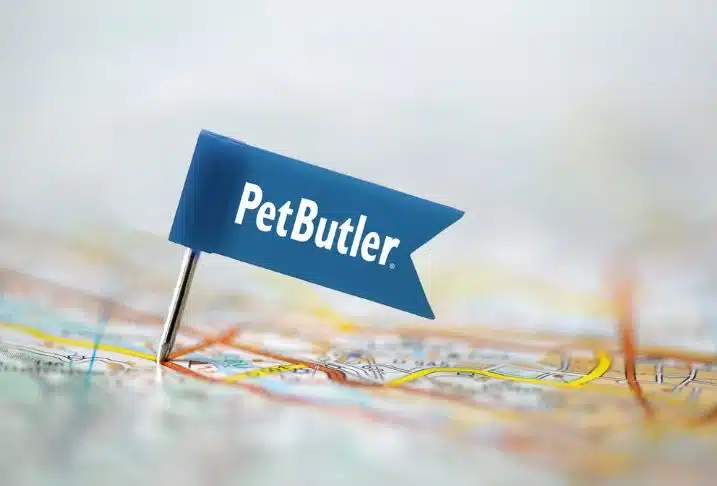Do you ever wonder where all those cute puppies sold in pet stores come from? More than likely, they were bred in a facility with hundreds of other dogs in inhumane conditions — commonly known as puppy mills.
What Are Puppy Mills?
Approximately 2.6 million puppies are sold in over 10,000 puppy mills every year, making their way to consumers through pet stores, internet ads, flea markets, and “breeders.” Puppy mills prioritize profit over sanitation, socialization, medical care, and the health of overbred female dogs and their puppies. These puppies and their moms are commodities to be sold for the highest price and raised with the least amount of investment.
Puppy Mill Conditions
Dogs in these mills are often housed on top of each other in crates that offer limited space and are filled with urine and fecal matter. These dogs lack exercise, grooming, medical care, and human contact. Even necessities like clean water and food are strictly rationed, causing many dogs to perish as a result. Genetic diseases among puppy mill puppies are common and infectious diseases such as parvovirus and distemper spread rampantly. Psychological trauma and behavioral issues stem from abrupt separations during transport and a lack of socialization.
Are Puppy Mills Legal?
Puppy mills can be found across the United States, but the level of enforcement of the Animal Welfare Act, along with state and local laws, varies. Only seven states have banned puppy mills sales from pet stores. States like Missouri and Arkansas are known for having lax regulations when it comes to puppy mill operations.
Legal definitions of cruelty, neglect, welfare, and breeding kennels are ambiguous. A lack of public awareness and resources to enforce laws ensures the profitability and propagation of puppy mills. Most puppy mills are considered legal when registered as breeding kennels that can house hundreds of dogs and multiple breeds in inhumane conditions for their entire lives, as long as the dogs are given the basics of food, water, and shelter.
Prosecution requires documentation of cruelty and neglect which can be difficult if a facility is federally licensed and protected as a kennel and private business, as inspections by the USDA are infrequent. In 2023, the USDA recorded Animal Welfare Act violations involving over 400 commercial dog dealers but acted against only four. Breeders who operate puppy mills that sell animals face-to-face with buyers aren’t regulated in the same way commercial facilities that resell puppies are. It can be a lawless landscape.
Consumer litigation against pet stores and awareness campaigns are making strides, but the battle is far from over.
What Can We Do?
- Adoption: A big way to curb puppy mill activity is to adopt pets through local shelters and breed-specific rescues instead of purchasing a pet online or in a store. Encourage others to adopt and spread the word about puppy mills.
If you choose to get a puppy from a breeder, ensure they’re following ethical practices. Good breeders are dedicated to one breed and are forthcoming in providing pedigree information, medical records, and genetic testing for their dogs. They allow buyers to visit their hygienic, humane kennels and the parents of puppies whose lifetime reproduction is limited for their health and safety. Reputable breeders provide social enrichment, exercise, grooming, and good nutrition for moms and pups, as well as have a strong relationship with a veterinarian for ongoing medical care. - Education: Educate yourself by reading up on local ordinances regarding animal welfare and standards of breeding kennels. The HSUS, Best Friends Society, and the ASPCA offer educational resources and opportunities to get involved as animal advocates and participate in fundraisers.
- Advocacy: Lobby your local government officials for stricter breeding standards and prohibition of online and pet store puppy sales. Report any concerns regarding animal welfare to local authorities such as animal control or a police department, news outlets, and the USDA Animal Control Division.
Puppy mills will continue to prioritize profit over the well-being of millions of dogs. Adoption, education, and advocacy are crucial to limiting the power of puppy mills going forward.
View our Pet Wellness Videos for more expert pet advice.
At Pet Butler, we want you and your pet to live your best and healthiest lives, which is why we offer Pet Waste Removal and Pet Care services year-round. We offer weekly, bi-weekly, monthly, and one-time clean-up services to meet your schedule and needs.


